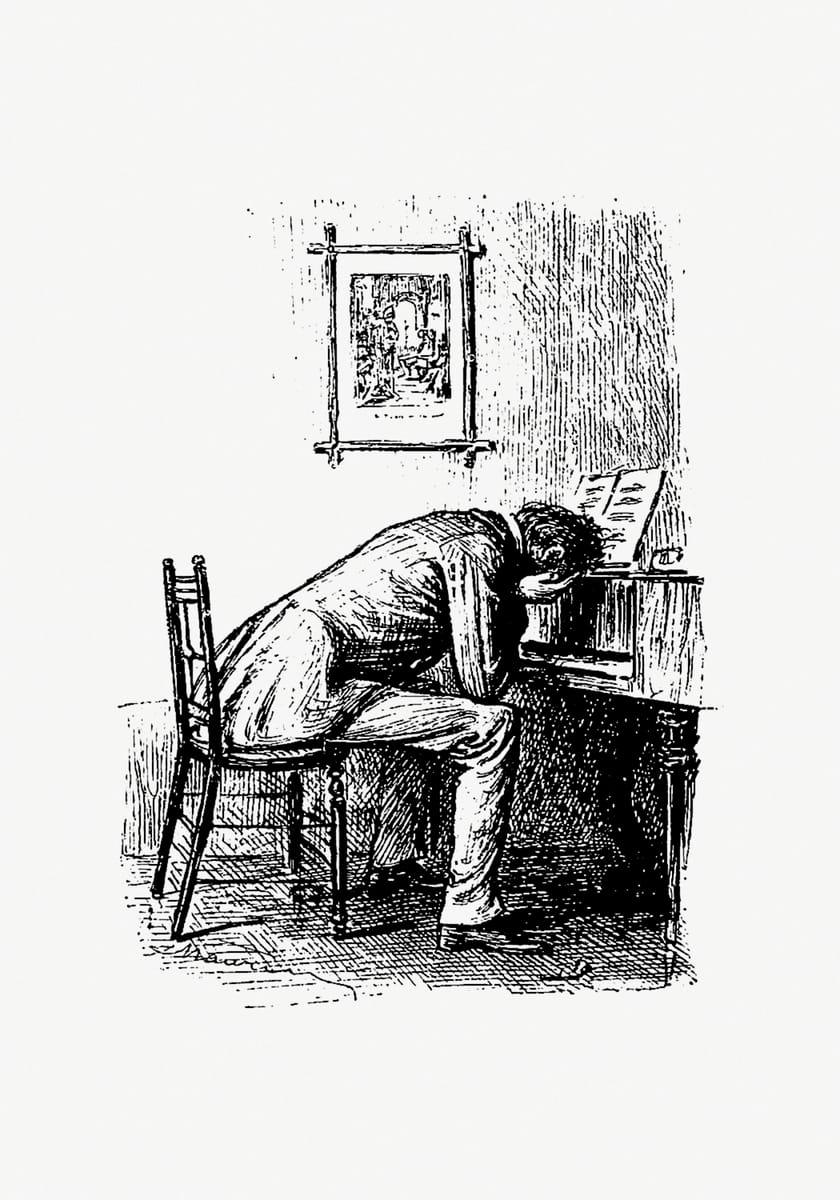A Slow and Snowy Start to Spring: March 31 - April 6

A high stress week at work, with two major events taking place, and a snow/hail filled soccer game of my son's this weekend left me little time for anything other than turning some pages at night to de-stress. At least I've been reading some good stuff, I guess.
Books
- Carrie by Stephen King (finished): Ultimately not as scary as I remembered, but more horrifying (if that makes sense) and way more interesting.
- 'Salem's Lot by Stephen King (started): These days, I often talk with people, when the topic arises, about my love of Stephen King's depictions of small town life. His portraits of these towns in (usually) Maine makes clear an affection for the interconnected lives of a place in the same way that Richard Russo's work does – though King usually spends a bit more time with the more reprehensible members of the community than Russo does. I've been drawn to his later works like 11/22/63 or even Billy Summers for just this reason, and only as I've started 'Salem's Lot have I realized that it wasn't always there. I'm not too far in right now, and in the first five or six chapters he certainly spends time laying out the town of 'Salem's Lot and filling in some very loose backstory around it, but there's no spark there and nothing really to care about. There's a mystery that is being kept from the reader, and I suppose that might account for some of the distance I'm feeling but it could also be a chance for King to really stretch his legs and fill us in on the lives of some of the people. I realize he can't do it for structural reasons, but I'm really feeling the loss of the opportunity.
As usual, I continually need to learn my lesson of letting the book be the book it is rather than the one I want it to be... - Mystery Train by Greil Marcus (continued): I'm nearly done, and I'm still trying to wrap my head around what Marcus' ultimate thesis is here. He's interested in freedom and how it manifests in rock and roll – from authenticity to detached bemusement to archetypal performances of black masculinity – but I still can't for the life of me really understand what the hell the Randy Newman chapter is doing in here. I suppose I should cut Marcus some slack for writing this before "I Love LA" was released, but I feel like he's really been talking about Warren Zevon the whole time while using the most unassuming pseudonym possible for him. Randy Newman? Really?
- Tune In by Mark Lewisohn (continued): I'm about 125 pages in and the Beatles still haven't met each other, though they have, by this point, heard rock and roll and been irrevocably changed. I surprised to find Ringo the most interesting in the early going – despite Lewisohn's claims that John was the prime mover of all things – as he moves back and forth from a tough, street-fighting life in the roughest part of Liverpool to the Children's Hospital where he's essentially an invalid for long enough to leave him behind forever in school. Not that he cares...
Music
"I Wish I Knew How It Would Feel To Be Free" by Nina Simone:
Found while looking for a video to introduce my daughter to Simone's music after we read about her before bed one night in Goodnight Stories for Rebel Girls and it's incredible. We also learned about Maria Callas that night:
Articles and Episodes
"An E-Bike Transformed My Family's Life" by Elizabeth Endicott (The Atlantic): I've been thinking about getting an electric bike lately – possibly even to replace one of the family cars – though it wouldn't be for the slow life reasons that Endicott celebrates here. We're going to need a new car this fall, and the bike would simply serve as an effective way for me to commute the one mile to work while saving car payment money as the damn tarrifs kick in.
"Why Catullus Continues To Seduce Us" by Daniel Mendelsohn (New Yorker): I try to make a habit of reading anything Mendelsohn or Alex Ross writes, and like all their pieces this review of two new translations taught me much more about Catullus than which new edition I might like to buy. It's probably the sole reason I keep my subscription at this point – the chance to learn something new and fascinating on a regular basis. Also, Catullus is far more inventive and clever in his use of filthy language than I had ever realized.
This Old House, S37:E17-18: We've moved on from the Belmont Victorian to a North Shore Farmhouse that is largely pre-built in a factory before being delivered to the job site. It's absolutely fascinating to see how this house is made more efficiently and, thus, cheaply by doing much of the framing ahead of time. It feels like real life legos in some ways, and I'm already wondering why more homes aren't built this way. (Though I must admit I haven't seen the finished product yet and this question might well answer itself.)
Member discussion